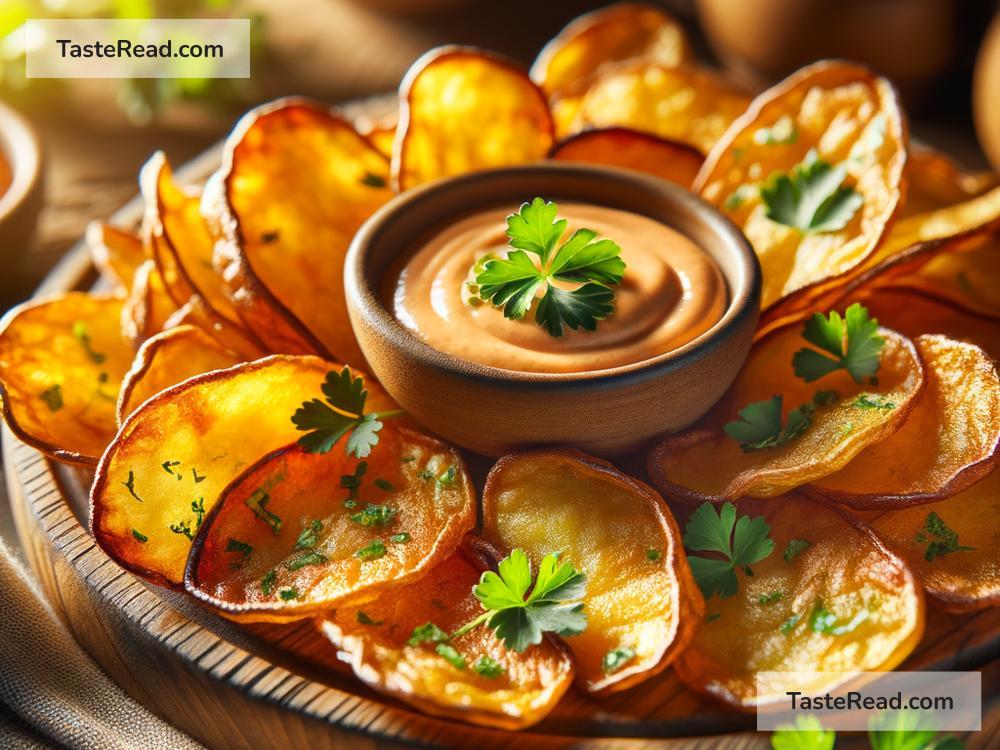Potato Skins: A Tasty and Natural Way to Fight Inflammation
When you think of the humble potato, you probably imagine mashed potatoes, French fries, or baked potatoes with butter and sour cream. But have you ever stopped to think about the potato’s skin? That thin, often-overlooked outer layer may hold incredible health benefits, especially as a source of natural anti-inflammatory compounds. Let’s explore how potato skins can do more than jazz up your favorite recipes—they might actually help your body heal and reduce inflammation.
What Is Inflammation?
First, let’s understand what inflammation is. Inflammation is the body’s way of protecting you. Think of it as your body’s defense system that kicks in whenever there’s an injury, infection, or irritation. While short-term inflammation can help you heal, long-term or chronic inflammation can lead to health problems like heart disease, arthritis, obesity, and even some types of cancer.
This is why controlling inflammation is essential for overall health. While medications can help, many people are turning to natural ways to reduce inflammation, such as eating foods that fight it. Surprisingly, potato skins may be one of those foods!
Potato Skins: More Than Just a Wrapper
Most people peel potatoes without thinking twice, but the potato skin is actually packed with nutrients and bioactive compounds. Research has shown that potato skins contain antioxidants, fiber, vitamins, and minerals. More importantly, potato skins have compounds that may help reduce inflammation. Let’s talk about these powerful ingredients.
1. Polyphenols: Protectors Against Inflammation
Potato skins are rich in polyphenols. These are plant-based compounds that work as antioxidants. Antioxidants protect your body from free radicals—damaging molecules that can cause inflammation in your tissues. Polyphenols have been studied for their ability to reduce inflammatory markers in the body, meaning they can calm down the inflammation process.
2. Dietary Fiber: Supporting Gut Health
Did you know that potato skins are also a good source of fiber? Fiber helps improve digestion and keeps your gut healthy. A healthy gut has been linked to lower inflammation levels throughout the body. When your gut bacteria are thriving, they release beneficial compounds that help control inflammation. Potato skins give your digestive system the fiber it needs for better gut health—and happier joints, muscles, and organs.
3. Vitamins and Minerals
Potato skins are packed with several nutrients that support your overall health. For example, they contain potassium, vitamin C, magnesium, and iron. Vitamin C is particularly important because it acts as a natural anti-inflammatory agent, while magnesium helps regulate inflammation-related processes in the body. Potassium also supports healthy muscles and may soothe inflammation in areas like blood vessels.
4. Glycoalkaloids: A Hidden Benefit
Potatoes naturally contain compounds called glycoalkaloids, which are concentrated in the skin. Initially, glycoalkaloids were studied for their potential toxicity, but researchers found that, in moderation, they can actually reduce inflammation and help fight oxidative stress (a trigger for inflammation). These compounds may even have antimicrobial properties, which could support your immune system.
How Potato Skins Fight Chronic Inflammation
Chronic inflammation is a silent culprit behind many health problems. Whether it’s joint pain, heart disease, or digestive issues, inflammation plays a big role. Eating anti-inflammatory foods like potato skins may help reduce inflammation naturally and support long-term health.
Here’s how potato skins work:
– Reduce oxidative stress: Antioxidants in potato skins neutralize free radicals, preventing damage to tissues.
– Support gut health: Fiber promotes healthy digestion and reduces inflammatory markers.
– Regulate cellular responses: Polyphenols and vitamins from potato skins help regulate your body’s immune responses, keeping inflammation under control.
How to Include Potato Skins in Your Diet
Now that you know potato skins are good for you, how can you start adding them to your meals? The good news is that potato skins are easy to work with and often delicious!
1. Make Crispy Potato Skin Snacks
Cut potato skins into strips, season them with olive oil, salt, and your favorite spices, then bake them until crispy. These crunchy bites make a great snack or side dish.
2. Stuffed Potato Skins
After scooping out the potato flesh, use the skins as little “bowls” to fill with healthy toppings like vegetables, beans, and shredded chicken. Bake them for a fun and nutritious meal.
3. Fry or Roast with Seasoning
Leave the skins on when making roasted potatoes or homemade fries. The skin adds flavor and texture while delivering extra nutrients.
4. Blend Them into Soups
Don’t peel your potatoes when making soups or stews. Potato skins will soften, adding nutrients and anti-inflammatory benefits right into your meal.
A Word of Caution
While potato skins are healthy, make sure you’re using clean, organic potatoes whenever possible. Conventionally grown potatoes can contain pesticide residues on their skin, so washing them well or choosing organic options is important. Also, avoid eating green or sprouted potato skins, as these can contain higher levels of glycoalkaloids, which might be harmful in large amounts.
Conclusion
Potato skins are more than just food waste or a part of the potato we discard—they’re packed with nutrients that can reduce inflammation, support gut health, and protect your body against free radicals. By embracing the potato skin as part of your diet, you’re not only reducing food waste but also giving your body a natural boost toward better health.
So the next time you cook potatoes, keep those skins intact or turn them into delicious snacks. Your body—and your taste buds—will thank you!


